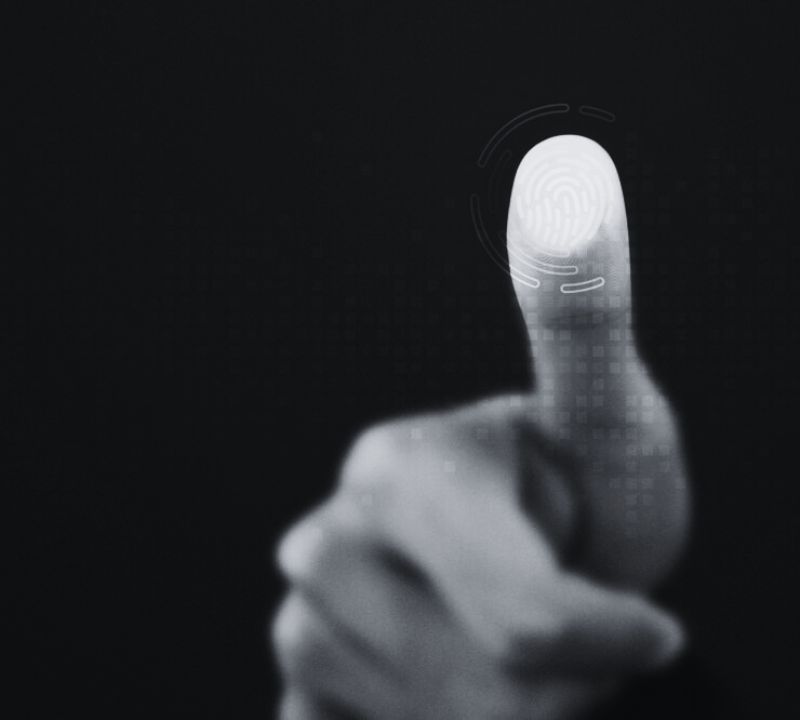Let’s talk about an important occurrence in the world of data privacy – the Haemonetics BIPA Settlement. It’s a recent legal resolution that dealt with the protection of biometric data, specifically fingerprints. This settlement is related to Haemonetics, a global company involved in blood and plasma collection, which found itself in a legal tangle due to alleged violations of Illinois’ Biometric Information Privacy Act (BIPA).
Biometric Information Privacy Act (BIPA) Background
The Biometric Information Privacy Act, also known as BIPA, is legislation exclusive to the state of Illinois. Enacted in 2008, BIPA provides safeguards for the handling of biometric data, such as fingerprints, facial scans, and eye scans. It’s built on the idea that biometric information is inherently sensitive and unique, and individuals should have the right to control how their biometric data is collected, used, and stored.
Under BIPA, businesses must obtain written consent before they can collect or store an individual’s biometric data. They also have to inform the individual about the purpose and length of time for which the data will be stored and used. Non-compliance with these regulations can lead to hefty penalties, ranging from $1,000 for negligent violation to $5,000 for intentional or reckless violation, or actual damages, whichever is greater.
The Crumpton v. Haemonetics Corporation Case
The story of the Haemonetics BIPA settlement begins with a lawsuit filed by a plasma donor named Latisha Crumpton. The case, Crumpton v. Haemonetics Corporation, alleges that Haemonetics violated the BIPA by collecting and storing the fingerprints of blood plasma donors without obtaining their proper written consent. This case brought to light the issues surrounding the handling of biometric data and the potential risks individuals face when their biometric information is mishandled.

Haemonetics used a donor management software which required plasma donors to scan their fingerprints each time they donated plasma. This was done to ensure the identity of the donor and for tracking donations. However, according to the lawsuit, Haemonetics failed to obtain written consent from the donors before collecting their fingerprints, thereby allegedly violating BIPA.
The lawsuit sought compensation for the affected individuals who had their biometric data collected and used without their explicit consent. After a period of legal proceedings, both parties agreed to a settlement. The settlement marked a significant chapter in the enforcement of BIPA and serves as a reminder to businesses about the importance of respecting and protecting individuals’ biometric data.
Eligibility Criteria
First, let’s discuss who is eligible for the Haemonetics BIPA settlement. To be part of this settlement, you must have visited one of the plasma donation facilities in Illinois and used Haemonetics’ donor management software to scan your finger. This action should have taken place between February 4, 2016, and February 8, 2024. The critical factor here is that you did not provide written consent before scanning your finger. This is the crux of the issue and what the lawsuit primarily hinges on.
This eligibility criterion emphasizes the importance of informed consent before collecting and storing biometric data – a principle that is at the heart of BIPA. So, if you fall under this category, you could be entitled to compensation as a result of this settlement.
Settlement Amount Details
The next crucial detail is the settlement amount that Haemonetics agreed to pay. The company decided to handle the matter outside the courtroom and agreed to a settlement of $8.74 million. This substantial sum is indicative of the seriousness of the alleged BIPA violation and the potential repercussions for not adhering to data privacy regulations.
This amount also provides a glimpse into the potential financial consequences for corporations that don’t respect and follow data privacy laws. It serves as a signal to other businesses about the importance of data privacy and the potential cost of non-compliance.
Potential Award For Class Members
Now, let’s talk about what’s in it for you if you’re a class member. If you meet the eligibility criteria and have submitted a valid claim, you can expect to receive an estimated payment between $250 and $570. This amount is not fixed and depends on the number of claims filed.
While the monetary compensation may not seem significant, it’s important to see this as more than just a payout. It’s an acknowledgment of the breach of privacy and a step towards holding corporations accountable for their actions. It serves as a reminder that individuals’ biometric data is not to be taken lightly and must be handled with the utmost care and respect.
Other BIPA Settlements:
How To Submit A Claim Form?
Submitting a claim for the Haemonetics BIPA settlement is a crucial step. If you’re eligible, it’s your ticket to receiving compensation. The claim form is the official document that class members fill out to state their case and apply for a settlement award.
To submit a claim, you must have visited a plasma donation facility in Illinois and used Haemonetics’ donor management software to scan your finger between February 4, 2016, and February 8, 2024, without giving your prior written consent. The claim form is where you provide this information, along with your contact details.
Once completed, you can submit your claim form by May 9, 2024. The process is straightforward but crucial. Without a valid claim form, you won’t be eligible for a payout, so it’s worth taking the time to fill it out correctly and submit it on time.
Important Deadlines & Dates
In any legal case, deadlines are paramount. For the Haemonetics BIPA settlement, the key dates to keep in mind are the period in which the alleged violation occurred, the claim submission deadline, and the date of payment distribution.

The alleged BIPA violation took place between February 4, 2016, and February 8, 2024. If you donated plasma and had your finger scanned during this period, without providing written consent, you’re part of the class action. The deadline to submit your claim form is May 9, 2024. Any claims submitted after this date will not be considered, so make sure you get your claim in on time.
As for payment distribution, the settlement funds will be distributed starting from August 5, 2024. Payments will be made either by check through USPS or digital payments via Venmo or Zelle.
Final Approval & Payment Distribution
The final approval for the Haemonetics BIPA settlement was granted on June 4, 2024. With this, the settlement moved to the payment distribution stage. As mentioned earlier, payments will be issued starting from August 5, 2024. If you have submitted a valid claim, you can expect to receive your settlement award around this time.
Conclusion
The Haemonetics BIPA settlement is more than just a legal resolution. It’s a pivotal moment that underscores the importance of data privacy and the rights of individuals over their biometric data. The substantial settlement amount reflects the seriousness of the alleged violation and sets a precedent for other companies to watch.
For individuals, this settlement serves as a reminder of the importance of informed consent and the need to be vigilant about how their biometric data is collected, used, and stored. Businesses, on the other hand, can take this as a lesson in the importance of respecting data privacy laws and implementing robust policies for handling biometric data.
As we move forward, the implications of this settlement will continue to resonate, offering valuable lessons on data privacy and the handling of biometric information for both individuals and corporations.


